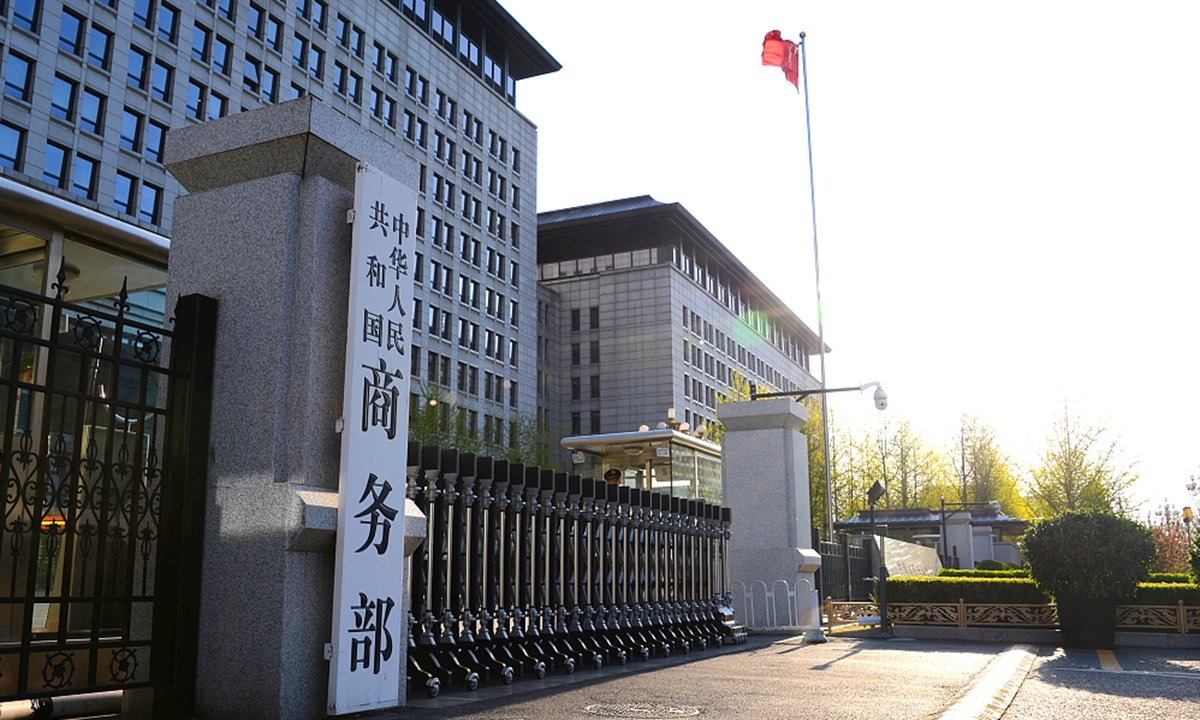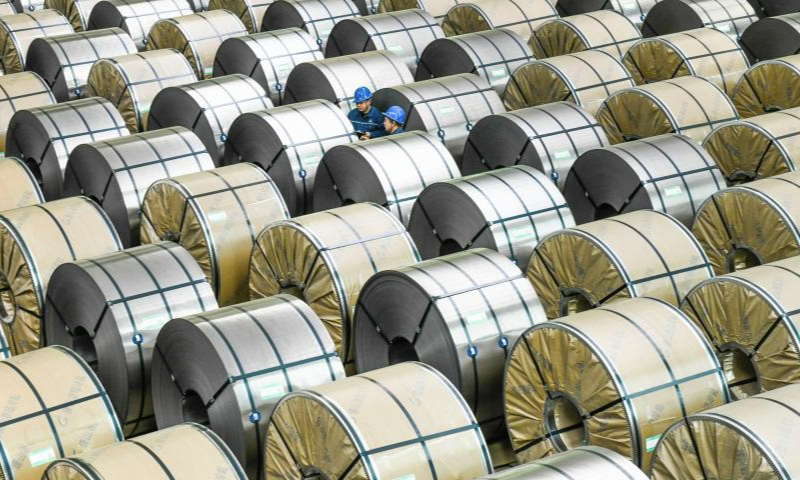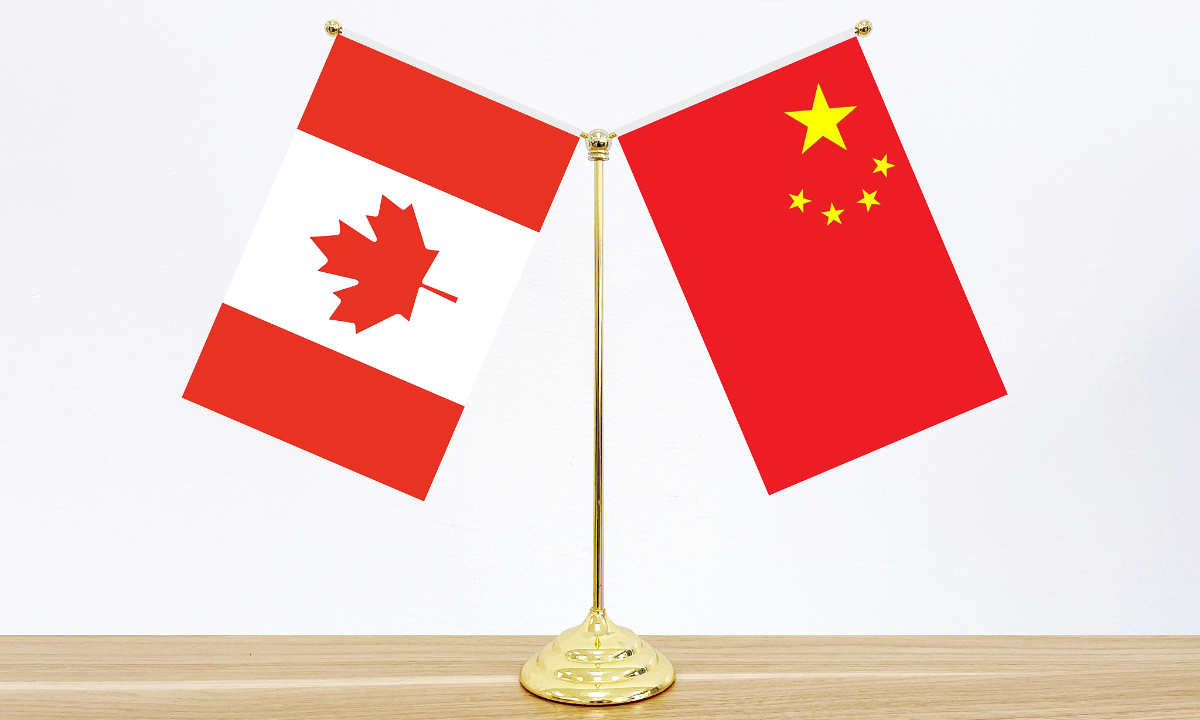
A canola crop used for making cooking oil sits in full bloom on the Canadian prairies near Fort Macleod, Alberta, Canada. File photo: VCG
China's Ministry of Commerce (MOFCOM) on Monday launched an anti-dumping investigation into imports of rapeseed from Canada, as initial evidence shows Canada's dumping of rapeseed in the Chinese market has caused substantial damage to the Chinese domestic industry.
The probe is in line with Chinese laws and regulations as well as WTO rules, but relatively rare, as Chinese authorities launched the investigation without having received application from the domestic industry, experts noted.
The move affects one of Canada's main exports to China, but it is starkly different in nature from Ottawa's discriminatory actions against Chinese products, they said.
In a notice on Monday, the MOFCOM said China's Anti-dumping Regulations stipulates that under special circumstances, the ministry can launch an investigation without receiving written application, if sufficient evidence shows there is dumping and the dumping has caused damage.
Preliminary evidence and information obtained by the MOFCOM show that Canada has engaged in the dumping of its rapeseed exports to China, the MOFCOM notice said.
The rapidly growing imports at continuously declining price has caused substantial damage to the Chinese domestic industry, per the notice.
In 2023, Canadian rapeseed exports to China jumped by a whopping 170 percent to $3.47 billion, while unit prices kept declining, according to the MOFCOM.
"The anti-dumping investigation is a legitimate measure that complies with WTO rules to protect domestic industries," an official from the MOFCOM was quoted as saying in the statement on Monday.
The official stressed that China's anti-dumping investigation on Canadian rapeseed is essentially different from Canada's discriminatory measures that have violated WTO rules.
China's Monday move came after Canada announced plans to impose additional tariffs up to 100 percent on some Chinese products, including electric vehicles (EVs), steel and aluminum.
On Friday, the MOFCOM said it had submitted a request to Canada for consultations at the WTO over Ottawa's plan to impose additional tariffs on Chinese EVs and other products. In addition, the MOFCOM has announced that it would launch an anti-discrimination investigation into Canada's decision, which is said to be the first of its kind.
Major differences
Although China's anti-dumping investigation into Canadian rapeseed came after Canada's measures against Chinese products, they are different in nature, as China's move is based on evidence and is in line with WTO rules, said Sang Baichuan, dean of the Institute of International Economy at the University of International Business and Economics.
"Canada's trade protectionist measures against Chinese products have caused a very negative impact on China-Canada trade and economic cooperation," Sang told the Global Times on Monday.
Canada's discriminatory actions also put a fresh strain on China-Canada relations, which plunged to an icy point in 2018 after the arrest of Huawei executive Meng Wanzhou at the behest of the US, experts said.
Meng was released in 2021 and both sides have been trying to repair damages ever since. Canada's foreign minister Melanie Joly visited China in July, the first trip by a Canadian foreign minister since 2017.
But by blindly following the US in imposing additional tariffs against Chinese products, Ottawa once again put China-Canada trade and economic cooperation at serious risk, experts said.
"Canada is politicizing trade issues. It is a political stunt rather than an economic action, and it is completely unreasonable," Huo Jianguo, vice chairman of the China Society for World Trade Organization Studies in Beijing, told the Global Times on Monday.
Huo said the growing tension between China and Canada due to the latter's protectionist actions could lead to an upward spiral in trade frictions, which will cause a lose-lose situation for both sides.
Without any investigation, Canada has announced a 100 percent additional tariff on Chinese EVs and a 25 percent tariff on steel and aluminum from China starting on October 1. Chinese authorities have repeatedly vowed that China would take all necessary measures to defend the legitimate rights and interests of Chinese companies, if Canada fails to correct its mistake.
In addition to the anti-dumping investigation into Canadian rapeseed, the MOFCOM announced on September 3 that it plans to launch an anti-dumping probe into relevant chemical products from Canada.




